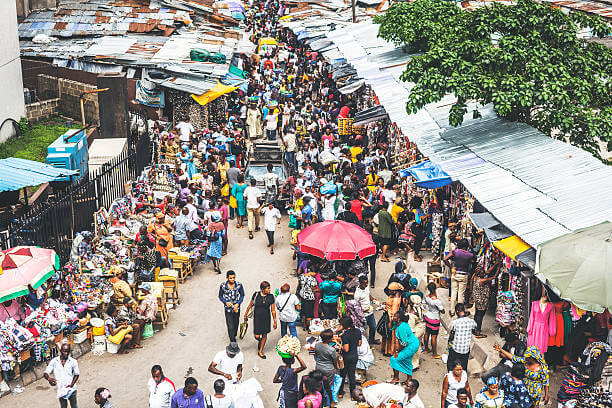Get ready to uncover the bustling heart of Nigeria’s economy. From sprawling mega-markets to niche hubs of commerce, these top 10 markets are not just trading centers—they’re cultural landmarks and economic drivers that define the nation’s entrepreneurial spirit. In this exclusive guide from LandsofNigeria.com, we’ll take you on a journey through the largest and most vibrant markets across Nigeria, each offering unique opportunities for traders, investors, and tourists alike.
Why This Matters: Understanding Nigeria’s Market Dynamics
Before diving into the list, it’s important to recognize the role these markets play in shaping Nigeria’s economic landscape. According to experts, local markets contribute significantly to Nigeria’s GDP, fostering small-scale entrepreneurship and providing affordable goods to millions of consumers [[6]]. For real estate investors, understanding these market dynamics can help identify high-demand areas for commercial properties or residential developments near key trading zones.
Let’s explore the top 10 biggest markets in Nigeria, highlighting their specialties and significance.
1. Onitsha Main Market (Anambra)
Claim to Fame: West Africa’s Commercial Powerhouse
Nestled in Anambra State, Onitsha Main Market reigns supreme as one of the largest markets in West Africa. Spanning vast acres of land, this expansive marketplace offers everything from imported second-hand clothing and jewelry to industrial equipment. If you’re looking for variety, look no further—Onitsha has it all. Whether you’re sourcing raw materials for your business or shopping for personal items, this market is unmatched in its diversity and scale [[1]].
2. Computer Village (Ikeja, Lagos)
Claim to Fame: Nigeria’s IT Hub
With contributions exceeding $2 billion annually to Nigeria’s economy, Computer Village stands out as a technological marvel within Ikeja, Lagos [[6]]. Here, tech enthusiasts find an array of gadgets, accessories, and software solutions catering to both individual users and businesses. From smartphones to servers, this hub bridges the gap between innovation and accessibility, making technology affordable and widely available.
3. Balogun Market (Marina, Lagos)
Claim to Fame: Fashion Capital of Lagos Island
For fashionistas and fabric lovers, Balogun Market is a treasure trove of textiles ranging from lace to ankara prints. Known for its intoxicating energy and endless aisles of colorful fabrics, this market caters to everyone—from tailors sourcing wholesale materials to individuals seeking bespoke outfits. Its strategic location near Marina makes it a must-visit destination for anyone interested in Nigerian fashion culture.
4. Ladipo Market (Mushin, Lagos)
Claim to Fame: Spare Parts Paradise
Located close to the bustling Lagos Port, Ladipo Market specializes in automotive spare parts. Need a specific component for your vehicle? Chances are, you’ll find it here. With both new and used parts available for virtually every car brand imaginable, Ladipo Market serves as a lifeline for mechanics and car owners alike. It exemplifies how proximity to ports enhances trade by facilitating imports of essential components.
5. Ariaria Market (Aba, Abia)
Claim to Fame: Made-in-Nigeria Hub
Aba’s Ariaria Market shines as a beacon of indigenous craftsmanship, showcasing products proudly labeled “Made in Aba” and “Made in Nigeria.” Renowned for shoes, bags, and other replicas, this market also boasts original, high-quality goods at competitive prices. While some critics label it a replica haven, many entrepreneurs swear by its affordability and authenticity. Ariaria Market proves that local production can rival global standards when given the right platform.
6. Bodija Market (Ibadan, Oyo)
Claim to Fame: Wholesale Food Emporium
If your goal is saving money while stocking up on groceries, Bodija Market in Ibadan is your ultimate destination. Offering fresh and dried produce at unbeatable prices, this market attracts traders and households alike. By purchasing in bulk, customers enjoy significant savings without compromising on quality. Bodija Market plays a crucial role in feeding communities across southwestern Nigeria, ensuring access to affordable food supplies.
7. Oil Mill Market (Port Harcourt, Rivers)
Claim to Fame: Weekly Fresh Produce Bonanza
Every Wednesday, Oil Mill Market transforms into a bustling carnival of fresh produce buyers and sellers. Located in Port Harcourt, this market provides access to affordable fruits, vegetables, and staple foods. Traders flock here weekly to procure fresh goods directly from farmers, reducing middleman costs and passing those savings onto consumers. For agricultural investors, this market highlights the importance of direct-to-consumer supply chains.
8. Zaki Biam Yam Market (Benue)
Claim to Fame: National Yam Central
As Benue State earns its title as the “Food Basket of the Nation,” Zaki Biam Yam Market leads the charge with its impressive array of yams. Farmers from across the country converge here to sell premium-quality yams at reasonable rates. Investors eyeing agribusiness ventures will appreciate the sheer volume and reliability of supply offered by this market, underscoring Benue’s pivotal role in national food security.
9. Kasuwar Kwari Market (Kano)
Claim to Fame: Handcrafted Fabric Haven
In northern Nigeria, Kasuwar Kwari Market stands tall as a premier destination for handmade tie-dye fabrics and other traditional textiles. Drawing visitors from neighboring countries like Niger and Chad, this market exemplifies cross-border trade and cultural exchange. Artisans thrive here, creating intricate designs that reflect the rich heritage of Kano’s textile industry. Real estate developers targeting cultural tourism projects would do well to consider locations near such iconic landmarks.
10. Alaba International Market (Lagos)
Claim to Fame: Electronics Empire
Last but certainly not least, Alaba International Market dominates the electronics sector in Nigeria. Housing thousands of vendors under one roof, this market stocks everything from household appliances to cutting-edge gadgets. Additionally, it doubles as a major distribution center for Nollywood films, further cementing its status as a multimedia powerhouse. Entrepreneurs exploring e-commerce opportunities will find fertile ground here, thanks to the market’s robust supply chain networks.
Conclusion: Leveraging Market Insights for Growth
These markets represent more than just trading venues—they symbolize Nigeria’s resilience, creativity, and economic potential. For businesses and investors aiming to succeed in Nigeria, understanding these market ecosystems is vital. By aligning strategies with regional strengths, whether it’s leveraging Computer Village’s tech prowess or tapping into Bodija Market’s agricultural bounty, stakeholders can unlock untapped opportunities for growth.




